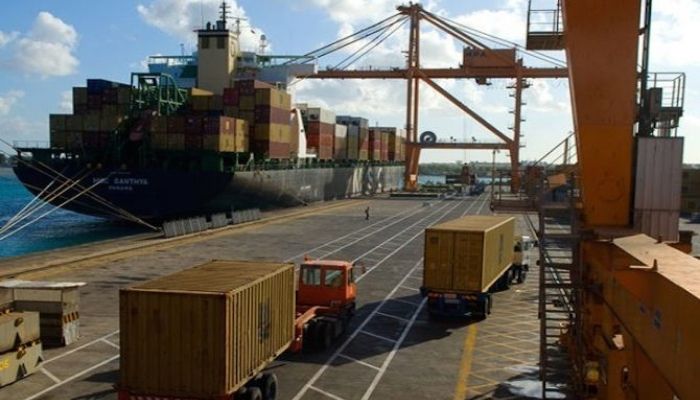The recent statement made by Nigeria’s vice president, Kashim Shettima, at the 3rd National Conference on Non-oil Export has caused quite a stir. While he declared that the nation’s trade balance has turned favourable, with exports rising significantly, the details of the statement require closer scrutiny. At the heart of his optimism is the assertion that Nigeria’s non-oil exports are beginning to show promising results. However, this claim raises important questions about the broader economic implications, the validity of the growth figures, and the quality of the exports driving such a shift.
One of the core arguments Shettima presented was the increase in Nigeria’s total external trade, which hit a record N6.5 trillion in the second quarter of 2024. While this statistic appears impressive, a closer look is necessary to understand whether this truly represents a win for Nigeria’s economic policy or is merely a statistical illusion. If we break down this number, the first glaring issue is the claim that Nigeria’s exports accounted for 60.89 per cent of total external trade. While exports increasing by 201.76 per cent from the previous year may seem promising, it is essential to remember that this figure is not adjusted for the depreciation of the Nigerian naira. Currency devaluation, often seen as a trade advantage for export-heavy economies, should be factored into this claim.
Herein lies a key economic principle: a weaker currency typically makes a nation’s exports more competitive on the global market. The simple reason is that, as the value of the currency falls, the price of exported goods in foreign markets becomes cheaper, making them more attractive to buyers. In this light, the naira’s depreciation since the currency’s floatation by the current administration could explain the rise in export values. However, this “success” is not as clear-cut as it may seem. Yes, exports may have become cheaper due to a weaker currency, but what exactly is Nigeria exporting?
For those more attuned to international economics, Paul Krugman’s famous statement from his Harvard Business Review article, A Country is Not a Company, offers critical insight here. He argues that a nation’s economy is not the same as a business, and it cannot simply “run a surplus” by encouraging more exports or slashing imports without considering the long-term implications on domestic industries. While Shettima’s administration aims to boost Nigeria’s trade balance, the real question should be whether this strategy contributes to sustainable growth or merely masks structural weaknesses. Krugman’s argument would suggest that focusing solely on improving trade balance without diversifying export offerings or investing in productive capacity may lead to short-term gains at the expense of long-term resilience.
One might also question whether the current trade balance, even as it appears favourable, is truly reflective of a substantive improvement in Nigeria’s economy. Adjusting for inflation, fluctuating exchange rates, and the overall cost of doing business, can we really say that Nigeria is making gains? The raw numbers Shettima referenced are subject to the vicissitudes of a fluctuating global market and exchange rate. In other words, comparing today’s trade balance with that of three years ago is like comparing apples to oranges unless the contextual changes—such as exchange rate shifts—are taken into account. Without these adjustments, any positive comparison could easily be misleading.
Nigeria’s structural economic problems also stand in stark contrast to the vision of a prosperous, diversified economy. Shettima emphasised the role of MSMEs and the government’s support through initiatives like tariff cuts on essential imports. While these measures may assist in some ways, the challenges facing Nigeria’s broader business environment cannot be ignored. From access to finance for small businesses to the unpredictable nature of government policies, it is still an uphill battle for local businesses to scale and become competitive on the global stage. What remains to be seen is whether these efforts to streamline trade regulations can overcome the deep-rooted structural inefficiencies that continue to plague Nigeria’s trade sector.
In light of the vice president’s statements, it is important to remind ourselves that, while it is possible to achieve short-term export gains due to favourable currency movements, true trade success lies in a diversified export base that adds value to raw materials. The ultimate measure of economic success is not simply the size of the trade balance but the depth of the economy’s industrialisation and the quality of goods it produces.
Without substantial investments in the country’s industrial base, Nigeria’s trade figures may simply represent a hollow victory—a temporary boost driven by favourable but unsustainable economic conditions. And unless Nigeria begins to export more than raw materials, its trade balance, though impressive on paper, will not reflect a truly transformative economic shift. As such, the administration must recognize the need for a long-term strategy that moves beyond the superficiality of trade surpluses and focuses on building a resilient, value-driven economy.





